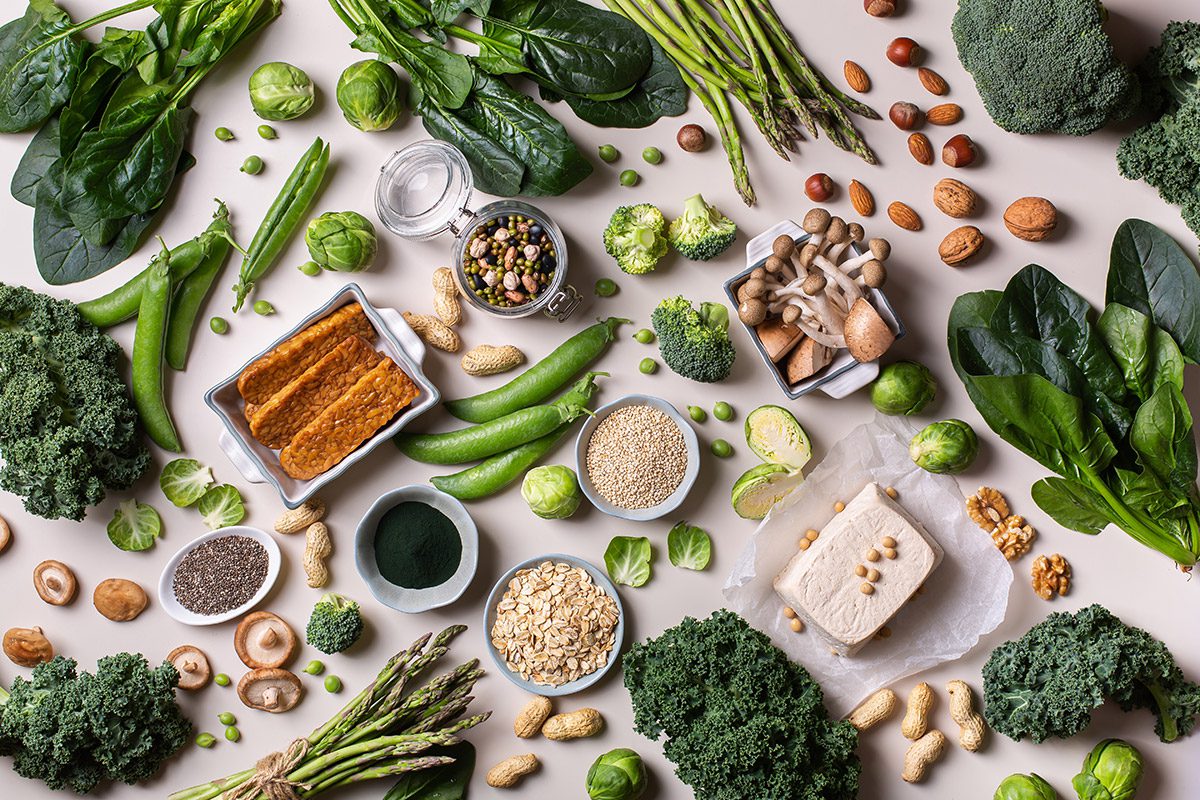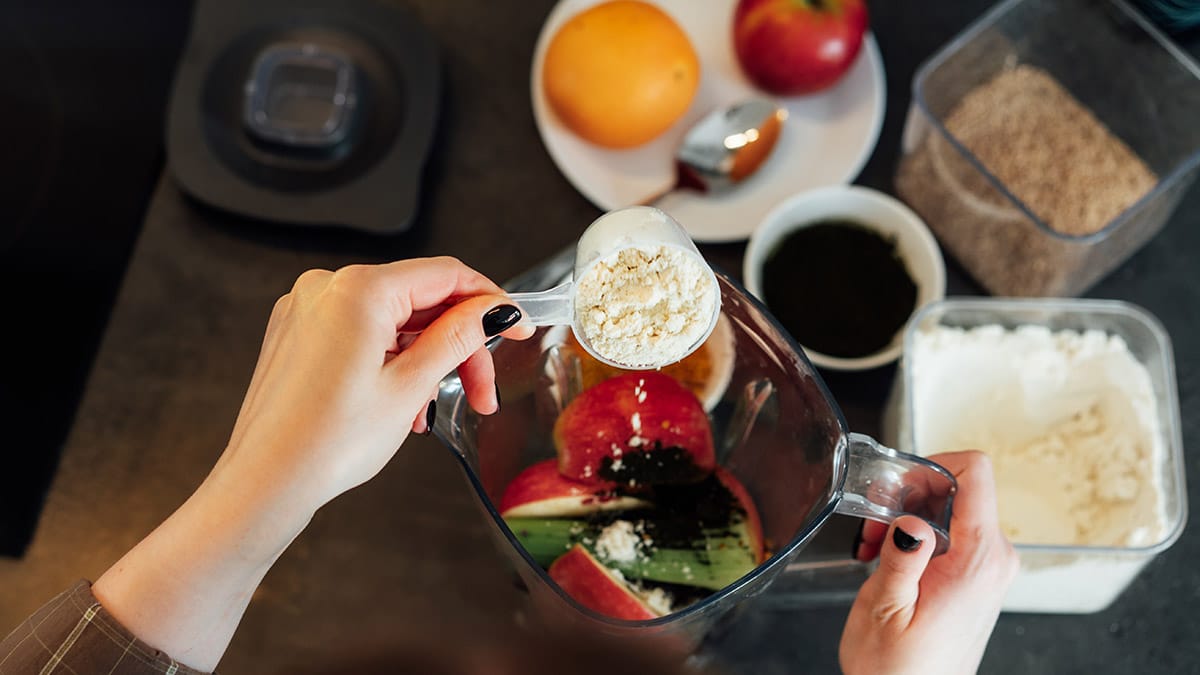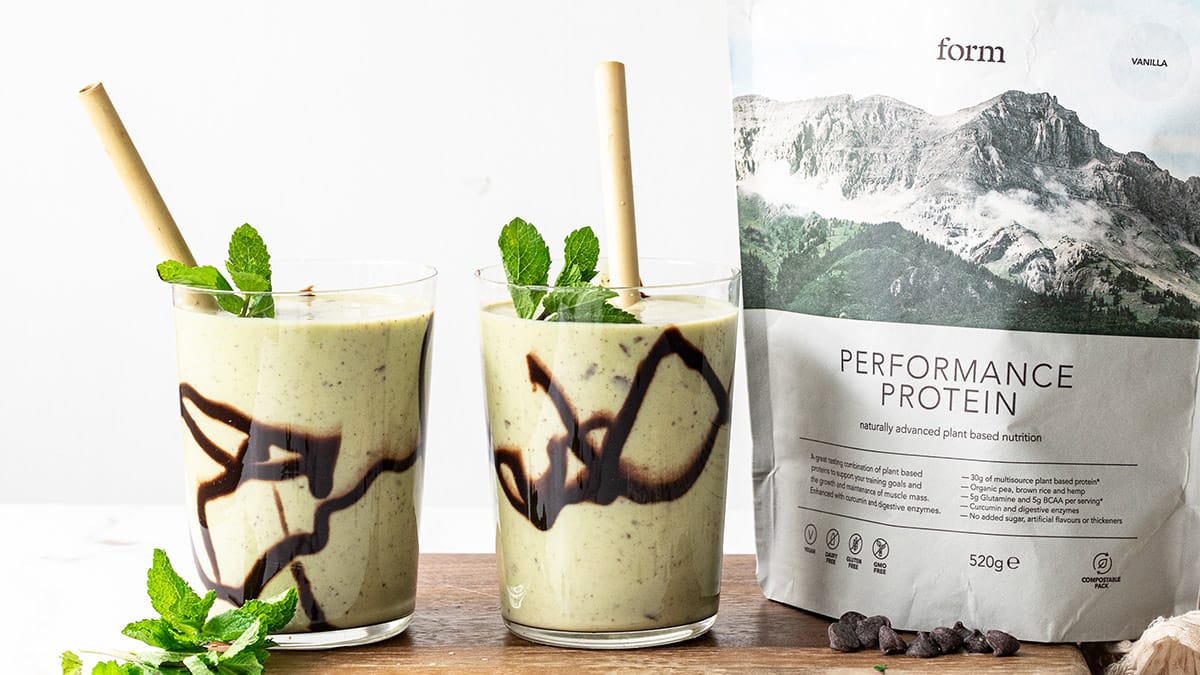Ask Dr Adam: Can Protein Help Me To Lose Weight?

For some, attempting to lose weight is very much a numbers game. Whether you painstakingly plug the calorie content of each meal into MyFitnessPal or make efforts to trim down your plate size, taking steps to put yourself into a calorie deficit – where you consume fewer calories than your body burns – is pretty much the only golden rule for losing weight.
So it probably sounds counterintuitive when we say that adding more calorie-rich, high-protein foods into your diet could help you to reap better weight loss results in the long run – but experts say that bumping up your intake of this satiating macronutrient can be surprisingly effective for trimming down. We asked our Head of Nutrition Dr Adam Collins to break it all down.
How can protein help me to lose weight?
The first thing to mention is that single-handedly, eating protein isn’t going to magically cause you to lose weight. However you spin it, you need to be in a calorie deficit to see results.
So how does protein fit into that? Well, it’s associated with weight loss for three key reasons:

Protein is satiating
Firstly, protein has a satiating effect on our bodies. If you eat a high-protein meal, packed with beans, legumes, nuts and seeds, it’s going to have a more filling effect than if you opt for a high-fat or high-carb plate.
Protein is known to be the most satiating of all the macronutrients, as it suppresses certain gut hormones, like ghrelin (the ‘hunger hormone’ which increases our appetite), and increases a neuropeptide called cholecystokinin (CCK) that regulates our digestive process. So, protein amplifies that satiety cascade, as we call it, which makes you feel fuller and less likely to snack between meals.
This is why many people have protein shakes with their breakfast, often called a ‘preload’, as it helps you to eat less and feel fuller and more satisfied for longer. That said, if you’re going down this route, it’s important to make sure that you look at the calories in your protein preload, so you’re still hitting that all-important deficit.
Unfortunately, it’s not just a case of eating as much protein as you want and watching the results roll in, as gram-for-gram, protein contains a similar number of calories as carbohydrates. The key difference is that a high-carb meal might leave you feeling hungry again a few hours later, whereas protein provides longer-lasting satiety.
Protein has a thermogenic effect
One selling point often made about protein is that it’s more thermogenic, meaning the calories burned during the digestion, absorption, transport and storage of protein are higher than for carbohydrates or fat.
While it’s true that digesting and absorbing protein does require a bit more energy, the relative contribution of this effect is fairly small, even in those with a very high-protein diet. So while this does play a role in weight loss, I think its importance has been slightly overplayed in the media.
Protein (alongside strength training) maintains muscle mass
The final benefit of eating protein for weight loss is that when you lose weight, particularly through crash dieting, you tend to lose both fat and lean muscle mass at the same time. Muscle tissue is metabolically active and burns more calories than fat at rest, so having less muscle can slow down your metabolism, making it harder to continue losing weight.
While you might see quick weight loss results on a fad crash diet, people tend to complain about regaining the lost weight quickly when they return to their normal eating habits. This is because their metabolism has slowed due to the loss of muscle mass during the dieting period.
To minimise this effect, you’ll need to swap dieting and cardio for a combination of resistance exercises and enough protein, supplied at the right times (either before or after exercise), to provide the building blocks for muscle repair and maintenance. Weight training in particular helps maintain muscle by counteracting protein breakdown during a calorie deficit.

Where does Form’s protein fit into all of this?
If you’re on a plant-based diet and are transitioning from cardio to resistance training for weight loss, Form protein powder can play an important role, as it can be harder to get everything you need from a vegan diet. Our Performance Protein provides a complete profile of essential amino acids, which the body can’t produce on its own and are crucial for muscle repair and maintenance.
Unlike single plant proteins, Form combines sources like rice, pea and pumpkin seed protein to ensure all essential amino acids are included, providing high-quality protein that supports muscle building and can help boost your metabolism.
Can I eat too much protein and gain weight?
Yes, eating more protein than your body needs will lead to weight gain, as excess protein supplies additional calories, which, if not used for energy, are stored as fat.
The bottom line is that if you’re using protein as a weight loss tool, you need to focus on your total daily calorie intake and make sure those satiating high-protein meals are nixing unnecessary calories elsewhere. Coupling this approach with resistance training can boost your metabolism by increasing your overall muscle mass.
The useful thing about protein is that when it’s paired with resistance training, it can help you to lose weight in a safe and sustainable way without leaving you feeling hungry, irritated or unsatisfied.


















